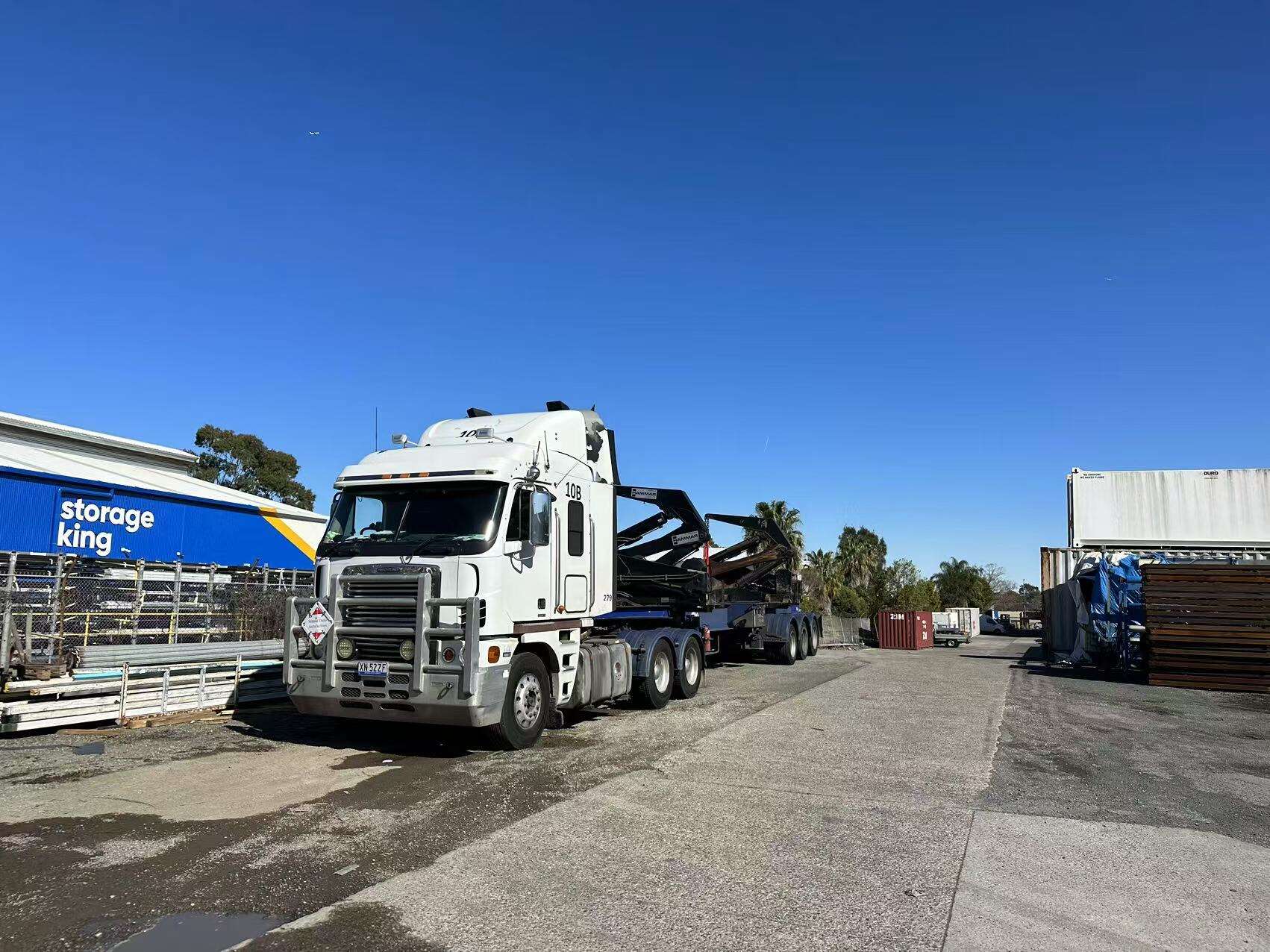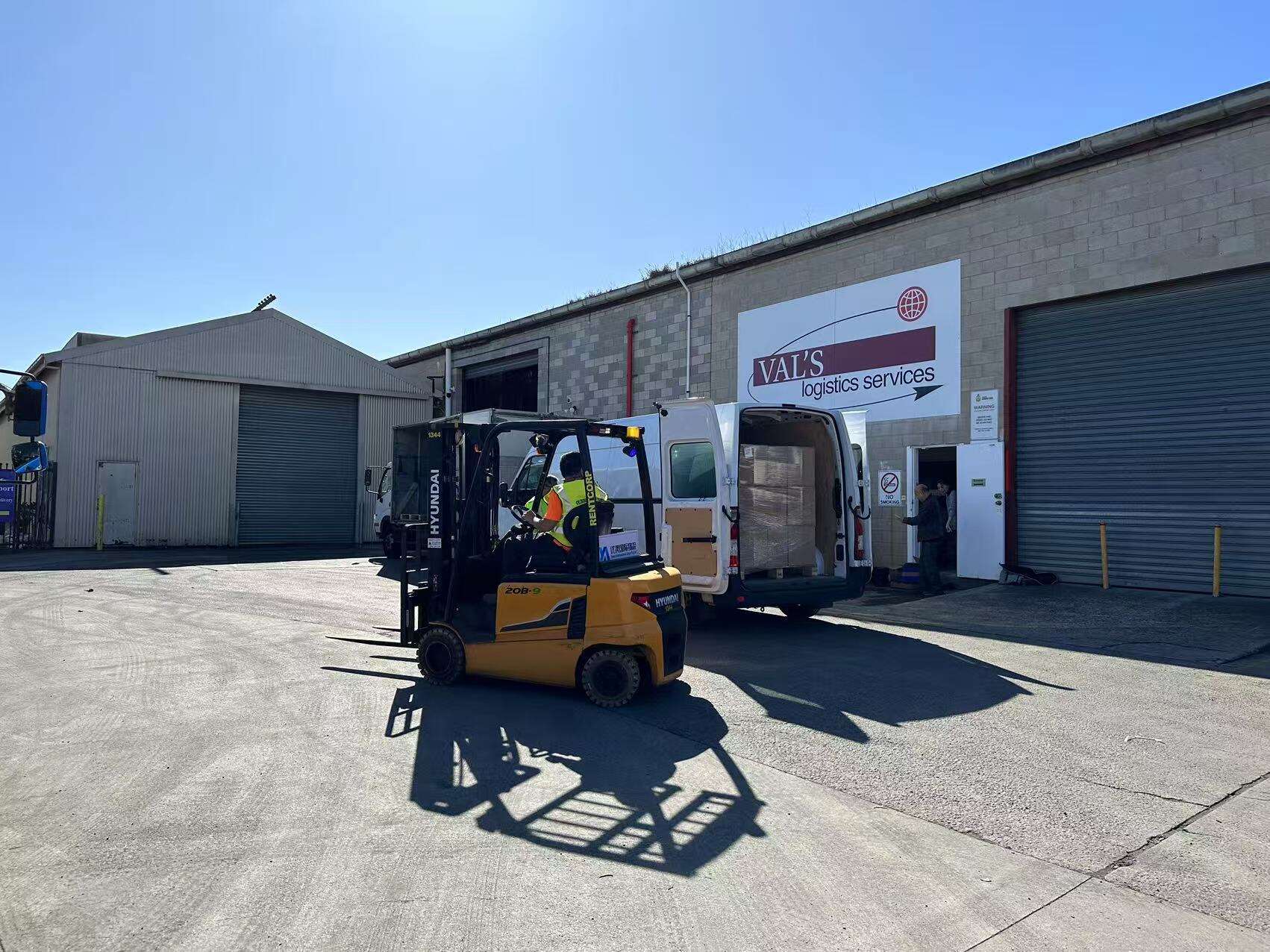국제 화물 운송의 환경 영향
글로벌 화물 운송에서의 탄소 배출
국경을 넘는 화물 운송은 매년 전 세계 이산화탄소 배출량의 약 3%를 배출해 기후 변화 논의에서 큰 비중을 차지하고 있습니다. 해운 부문은 환경 목표 달성을 위해 오염 배출을 줄일 수 있는 방안을 시급히 모색해야 하는 상황입니다. 파리 협정과 같은 조약으로부터 압박이 커지면서 선박 운항사들은 운영을 친환경적으로 전환하려는 움직임이 빨라지고 있습니다. 일부 산업 연구에서는 보다 깨끗한 연료와 개선된 엔진 기술이 특정 운송 상황에서 배출량을 최대 80%까지 줄이는 데 기여할 수 있는 핵심적인 해결책이 될 수 있음을 시사하고 있습니다. 친환경 전환은 지구 환경에만 이로운 것이 아닙니다. 친환경 인증을 중요하게 여기는 소비자들이 점점 더 많은 시장에서 경쟁사들과의 차별화를 꾀하려는 기업들에게 이는 분명한 이점을 제공합니다.
변화를 촉진하는 규제 압력
전 세계적으로 정부와 다양한 기관들이 화물 운송에서 발생하는 탄소 배출을 줄이기 위한 규제를 강화하고 있으며, 이는 이 업계가 얼마나 친환경적이어야 하는지를 변화시키고 있습니다. IMO 2020 황 함유량 규제를 예로 들 수 있습니다. 이 규정은 선박 운항사들이 무거운 연료유(HFO)에서 보다 깨끗한 연료로 전환하도록 강제했으며, 이로 인해 상당한 비용이 들었습니다. 이러한 새로운 기준을 무시하는 기업들은 높은 벌금을 물어야 할 위험에 처할 뿐만 아니라 브랜드 이미지에 손상을 입을 수 있습니다. 이에 따라 많은 화물 운송 업체들이 친환경 이니셔티브에 보다 적극적으로 투자하고, 규정을 준수하면서도 수익성 있는 사업을 유지할 수 있도록 돕는 새로운 기술을 도입하고 있습니다. 앞으로 이러한 변화하는 요구사항에 빠르게 적응하는 기업들이 특히 규제 기관과 소비자들의 친환경 공급망에 대한 요구가 높아지는 가운데 향후 몇 년간 시장을 주도할 가능성이 큽니다.
결론적으로 국제 해상 화물 운송의 환경적 영향은 상당하여, 이 업계가 보다 지속 가능한 방식으로 전환하도록 유도하고 있습니다. 규제 변화를 수용하고 더 깨끗한 기술을 탐구함으로써 기업들은 환경 규제에 순응하는 것을 넘어 시장 내 혁신을 선도할 수 있습니다.
핵심 그린 이니셔티브가 화물 운송을 변화시키고 있습니다.
대체 선박 연료의 채택
해운업계는 화물 운송 산업 전반에서 배출가스를 줄이려면 기존 연료에서 벗어나야 합니다. 선박에서 배출되는 탄소는 여전히 전 세계적으로 큰 문제이기 때문에 LNG(액화천연가스) 및 다양한 바이오연료와 같은 대체 연료 옵션이 친환경 해운 운영을 추구하는 사람들 사이에서 점차 주목받고 있습니다. 연구에 따르면 현재 선박에서 일반적으로 사용하는 연료와 비교해 LNG로 전환할 경우 약 30%의 CO2 배출 감소가 가능한 것으로 나타났습니다. 이러한 수준의 감소율은 LNG를 선박 운항사가 연료 선택지로 고려할 만한 가치가 충분히 있다는 점을 보여줍니다. 이러한 더 깨끗한 연료 옵션을 확산시키기 위해서는 실제 해운 회사들과 연료를 공급하는 업체 간 협력이 필요합니다. 이러한 파트너십이 이루어질 경우 대체 연료를 보다 실현 가능한 선택지로 만들 수 있는 분배 인프라를 구축하는 데 도움이 될 수 있으며, 단순히 종이 위에만 존재하는 이론적인 해결책을 넘어서게 됩니다.
스마트 항만 인프라 개발
스마트 항만 인프라에 투자하면 오염을 줄이면서 화물 운송을 더 효과적으로 개선하는 데 실질적인 영향을 미칩니다. 여기서 말하는 것은 컨테이너를 보다 빠르게 싣고 내리는 자동화된 크레인과 전반적으로 에너지 사용이 적은 터미널 등을 포함합니다. 글로벌 인프라 펀드(Global Infrastructure Facility)의 몇 가지 연구에 따르면 이러한 기술들은 운송 과정에서 약 40% 정도의 배출가스 감소를 가져올 수 있는데, 이는 선박들이 대기 시간을 줄이고 작업이 보다 원활히 이루어지기 때문입니다. 이른바 스마트 항만은 단지 작업 속도를 높이는 데 그치지 않고 친환경적 접근도 함께 도입하고 있습니다. 현재 상황을 살펴보면 기술 발전이 반드시 환경 책임감과 상충될 필요는 없다는 점이 분명히 드러납니다. 바다를 넘어 상품이 이동하는 방식을 변화시키는 과정에서 이 두 요소가 종종 잘 조화를 이룬다는 것을 알 수 있습니다.
포워딩 화물의 경로 최적화
최근 인공지능 및 머신러닝 도구의 도입으로 인해 화물 운송 경로 계획 수립 방식이 상당히 개선되었습니다. 기업들이 이러한 기술 솔루션을 실제로 적용하면 운송 경로 설정 방식에서 큰 개선이 이루어집니다. 이는 연료 소비 감소 및 유해 배출가스 감소로 이어집니다. 일부 연구에 따르면 스마트 경로 설정을 통해 배송 시간을 약 20% 단축할 수 있으며 배출량도 크게 줄일 수 있습니다. 대부분의 운송업체는 현재 트럭이 다음에 이동할 위치를 결정하는 데 실시간 데이터 분석에 의존하고 있습니다. 이를 통해 패키지가 목적지에 더 빠르게 도착할 수 있을 뿐만 아니라 이전보다 낮은 수준의 오염을 유지할 수 있습니다. 화물 운송 업계 전반적으로 경로 최적화 능력을 향상시키는 것은 단순히 환경에 좋은 것뿐만 아니라 오늘날 경쟁이 치열한 시장 환경에서 경제적으로도 합리적인 선택입니다.
지속 가능한 해운을 가능하게 하는 기술적 돌파구
AI 기반의 물류 관리 시스템
인공지능 기반의 물류 관리 시스템은 운송 작업을 더욱 지속 가능하게 만드는 데 있어 필수적인 요소가 되고 있습니다. 이러한 시스템은 예상치 못한 지연 시간을 줄여 주며 운송 수단 전반에 걸쳐 운용 효율을 높일 수 있습니다. 실제로 이를 도입한 기업들은 구체적인 성과를 경험하고 있습니다. 일부 연구에 따르면 운송 일정이 적절히 최적화될 경우 연료 사용량이 감소하고 비용이 약 15% 절감되는 것으로 나타났습니다. 이러한 시스템이 유용한 이유는 방대한 데이터를 생성하기 때문입니다. 운송 담당자들은 문제의 원인을 정확히 확인하고, 큰 문제로 악화되기 전에 해결할 수 있습니다. 물류 업계는 친환경 목표를 달성하면서도 운영 효율성을 유지할 수 있기 때문에 AI를 적극적으로 수용하고 있습니다. 대부분의 기업에게 이는 곧 공기질 개선과 더불어 수익성 향상을 동시에 이룰 수 있다는 의미입니다.
공급망 투명성 확보를 위한 블록체인 응용
블록체인 기술을 통해 공급망 투명성이 크게 향상되고 있으며, 이는 운송이 지속 가능하도록 보장하는 데 있어 매우 중요하다. 그 작동 방식은 물류 네트워크 전반에 걸친 추적 및 검증 기능을 개선함으로써 기업이 실제로 친환경 프로토콜을 준수하고 있음을 입증할 수 있게 해준다. 업계 관계자들에 따르면 블록체인은 탄소 배출량 보고에서의 허위 주장을 줄이고 시스템을 조작하는 것을 어렵게 만든다. 이러한 기술을 일상적인 운영에 통합하는 기업들은 투명성을 유지하면서 투자자와 고객과의 관계를 더욱 탄탄히 구축하게 된다. 최근 들어 물류 분야에서도 블록체인 도입이 늘고 있으며, 이는 환경 책임과 점점 더 높아지는 사회적 책임을 요구하는 시장에서 경쟁력을 유지하는 데 앞서 나가는 전략이 되고 있다.
실시간 화물 추적을 위한 IoT 센서
선적 컨테이너에 IoT 센서를 설치함으로써 기업들이 물품을 이동 중 추적하는 방식이 바뀌었으며, 이로 인해 운송 중 문제를 조기에 발견하고 손상이나 손실을 줄일 수 있게 되었습니다. 이러한 스마트 장치는 선박이 불필요한 우회 노선을 피하도록 도와 연료 소비와 전체 비용을 절감시킵니다. 최근 일부 연구에 따르면, 이러한 기술이 적용된 선박은 기존 방식을 사용하는 선박에 비해 탄소 배출량을 약 20%까지 줄일 수 있습니다. 친환경화를 향한 항운업계에게 이러한 소형 센서는 큰 의미를 지니며, 실시간 정보를 제공해 운영자들이 즉각적으로 더 나은 결정을 내릴 수 있도록 도와줍니다. 기업들은 이제 그러한 모니터링 시스템에 투자하는 것이 환경 보호에 도움될 뿐 아니라 오늘날 경쟁력 있는 시장에서 비즈니스 차원에서도 합리적인 선택임을 점차 인식하고 있습니다.
지속 가능성 옹호자로서의 포워더
친환경적 노선 설정 전략 실행
화물 운송업체들은 환경 영향을 줄이기 위해 실제로 친환경 경로 설정 방식을 도입하기 시작했습니다. 이들은 시간을 절약하고 연료 소모를 줄이는 경로를 설정하기 위해 다양한 고급 컴퓨터 프로그램과 실시간 교통 정보를 활용하고 있습니다. 일부 연구에 따르면 이러한 스마트 경로 설정 기술을 도입한 기업들은 연료 사용량을 10~15%까지 줄일 수 있다고 합니다. 이처럼 연료 소비를 줄인다는 것은 운송 분야에서 탄소 배출량을 크게 낮출 수 있다는 의미입니다. 또한 흥미로운 점은 여러 기업들이 이제 공유 온라인 네트워크를 통해 협력하면서 효율적인 배송 경로에 대한 노하우를 교환하고 있다는 것입니다. 이러한 협력은 물류 산업 전반을 이전보다 더욱 친환경적으로 만들고 있습니다.
마지막 마일 배송 차량의 전동화
전기차는 도심까지의 마지막 구간 배송에 점점 더 인기를 끌고 있으며, 이로 인해 오염물질 배출이 크게 감소하고 있습니다. 전 세계의 도시들이 대기질 개선에 본격적으로 나서고 있으며, 최근 여러 주요 대도시에서 실시된 연구에 따르면 디젤 트럭에서 전기 트럭으로 전환할 경우 탄소 배출량을 약 60퍼센트 정도 줄일 수 있는 것으로 나타났습니다. 정부 역시 다양한 재정 지원 및 보조금을 제공하며 전기 차량으로의 전환을 추진하고 있으며, 이는 운송 업체들이 자사의 차량 보유대수를 전기 모델로 전환하도록 유도하기 위한 것입니다. 환경을 위한 노력 외에도 소비자들이 배송되는 패키지에 대해 친환경 옵션을 점점 더 선호하고 있는 점도 이러한 변화가 중요한 이유입니다. 이 변화를 수용하는 기업들은 단지 환경을 보호하는 것뿐만 아니라, 친환경 공급망 관리가 각광받고 있는 시장 환경 속에서 경쟁 우위를 확보할 수 있는 위치에 놓이게 됩니다.
협력적인 산업 전반의 친환경 프로토콜
친환경 활동을 할 때는 산업 간 협업을 통해 표준적인 환경 규정을 마련함으로써 각 기업이 책임감을 갖고 투명하게 운영하도록 하는 것이 매우 중요합니다. 공동의 지속 가능성 이니셔티브에 참여하는 기업들은 운영 효율성을 높이고 비용을 절감할 수 있다는 연구 결과도 있습니다. 친환경 기준은 탄소 배출량 추적에서부터 환경에 무해한 소재 확보에 이르기까지 다양한 운영 분야를 포괄합니다. 화물 운송업체를 포함한 물류 기업들은 이러한 환경 책임의 모범을 보여주며, 운송 및 물류 분야에서 실제로 책임 있는 태도가 무엇인지 보여주고 있습니다. 현재 진행 중인 이러한 활동은 단지 환경에 좋은 것뿐만이 아닙니다. 친환경 프로그램에 적극적으로 참여하는 기업들은 소비자와 투자자들로부터 신뢰를 얻을 수 있으며, 이는 궁극적으로 산업 전반의 이미지를 강화하는 데 기여합니다.
친환경 항운을 위한 글로벌 규제 체계
IMO 2020 황 함유량 규제 및 그 이후
IMO 2020 황 함유량 규제는 전 세계 선박들이 깨끗한 연료로 전환하거나 스크러버를 설치함으로써 황 오염을 줄이도록 강제한 중요한 규정 중 하나이다. 이 규제가 시행된 이후 실제로도 뚜렷한 성과가 나타났다. 환경 감시 단체들의 최근 보고에 따르면 국제 해역 전반에서 이산화황 수치가 약 77% 감소했다. 이러한 유형의 규제들은 현재를 위한 것뿐만 아니라 향후 더 큰 변화를 위한 기반도 마련한다. 전문가들 중에는 향후 탄소 배출 감축에도 유사한 접근 방식이 큰 효과를 가져올 것으로 보는 이들이 많으며, 이는 현재 기후 변화 문제에 상당한 영향을 미치고 있는 해양 선박들에 있어 매우 큰 차이를 만들어낼 수 있다.
탄소 가격 책정 제도의 부상
탄소 가격 책정 제도는 특히 배출가스 문제가 오래전부터 제기되어온 해운업계에서 기업들이 지속 가능성에 접근하는 방식을 재편성하려 하고 있습니다. 기본적인 개념은 간단한데, 기업이 오염을 유발할 경우 더 많은 비용을 지불해야 하므로 깨끗한 대안을 찾도록 유도하는 것입니다. 해사 무역 협회들의 연구는 이러한 접근 방식이 온실가스 감축에 상당히 효과적임을 입증하고 있습니다. 이러한 변화를 무시하는 기업들은 장기적으로 수익성에 심각한 타격을 입을 수 있습니다. 현재 전 세계 항구들에서 다양한 형태의 탄소세가 시행되고 있으며, 이로 인해 선박 운항사들은 친환경 기술에 투자하거나 수익 감소를 방관할 수밖에 없는 상황입니다. 일부 대형 해운업체들은 이미 추가 비용을 회피하기 위해 선박에 배출가스 통제 시스템을 개량 설치하기 시작했습니다.
항공 화물 운송에서의 지역별 규제 준수 문제
국제 운송 규정은 전 세계적으로 일관되게 적용되는 것을 목표로 하지만, 항공 화물 운송의 경우 지역마다 각기 다른 규제가 적용되기 때문에 복잡해집니다. 이러한 제각각인 접근 방식은 일부 기업이 특정 지역에 위치해 있다는 이유만으로 더 높은 비용을 부담하고 운영에 어려움을 겪는 불공평한 경쟁 환경을 초래합니다. 진정한 해결책은 국제 규제 기관부터 실제 화물을 취급하는 기업에 이르기까지 모든 관계자들이 정기적으로 협의체에 앉아 허용 가능한 운영 기준에 대해 합의점을 찾는 데 있습니다. 이러한 합의가 이뤄진다면 규칙을 제대로 따르는 누구도 소외시키지 않으면서 상품의 국경 통과가 훨씬 원활해질 것입니다.
친환경 화물 운송의 미래 트렌드
자율주행 무배출 선박
앞으로 자율 운항 선박은 탄소 배출 제로(Zero Emission) 항해를 위한 중대한 전환점이 되며, 전 세계적으로 물류 운송 방식을 완전히 바꿀 수 있습니다. 이러한 첨단 선박은 기존 선박보다 더 똑똑하게 작동하여 최적의 항로를 찾아내고 항만 지역에서 대기하는 무분별한 시간을 줄일 수 있습니다. 최근 일부 연구에 따르면 현재의 운송 방식과 비교해 이들 선박는 탄소 배출량을 최대 90%까지 줄일 수 있는 것으로 나타났습니다. 환경 문제는 해가 갈수록 더 심각해지고 있으며, 현재 이 기술 개발에 상당한 자금이 투자되고 있는 실정입니다. 전문가들은 대부분 앞으로 10년 정도 지나면 국제 해역 곳곳에서 정기적으로 무공해 자율 운항 선박이 등장하기 시작해, 글로벌 화물 운송 분야에서 일반적인 관행으로 자리 잡을 것으로 예상하고 있습니다.
작업 효율성을 위한 디지털 트윈
최근에는 해운사들도 디지털 트윈에 점점 의존하고 있습니다. 디지털 트윈이란 실제 세계의 시스템을 반영하는 컴퓨터 모델을 말합니다. 이러한 가상 모델을 통해 기업들은 문제 발생 전에 이를 파악하고 운영 방식을 조정함으로써 공급망 전반에 걸친 배출량을 줄일 수 있습니다. 예측 분석 도구를 갖춘 물류 회사는 장비에 고장이 생길 시점을 예측하고 선박을 과거 어느 때보다 현명하게 우회 운항시킬 수 있습니다. 맥킨지 앤 컴퍼니(McKinsey & Company)의 최근 산업 연구에 따르면, 이러한 기술을 도입할 경우 산업 전체에서 연간 약 30억 달러의 효율성 향상으로 절감 효과를 얻을 수 있습니다. 항구들과 운송업체들이 이러한 디지털 솔루션을 계속 채택해 나감에 따라, 글로벌 시장에서 화물 운송을 원활하게 유지하면서도 친환경적인 방식으로 산업 자체가 변모하고 있습니다.
지속 가능한 항공 연료 기술 발전
지속 가능한 항공 연료(SAF)는 최근 항공 화물 운송에서 배출되는 온실가스를 줄이는 데 실제로 상당한 진전을 보이고 있습니다. 테스트 결과에 따르면 이러한 대체 연료는 기존 제트 연료와 비교해 전체 생애 주기 동안 온실가스 배출을 약 80%까지 감축할 수 있는 것으로 나타났습니다. 이 수준의 감축은 항공사들이 전반적인 탄소 발자국을 크게 줄일 수 있는 중요한 기회를 의미합니다. 전 세계 정부들이 SAF 사용을 장려하는 정책을 점차 도입하고 있지만 지역에 따라 시행 수준에는 차이가 있습니다. 여전히 글로벌 무역이 항공 운송에 크게 의존하고 있는 상황에서 보다 깨끗한 연료로의 전환은 점점 더 중요해지고 있습니다. 항공사들은 비용 요인을 고려하면서도, 고객과 규제 당국에서 요구하는 보다 친환경적인 항공 서비스를 유지해야 하는 압력을 받고 있으며, 동시에 배송 속도나 신뢰성은 유지해야 하는 과제를 안고 있습니다.
녹색 전환 과제 해결
인프라 현대화 투자
친환경 선박 운항을 지원하기 위해서는 인프라 개선이 여전히 중요하지만, 이는 정부와 기업 모두에서 막대한 자금이 필요로 합니다. 일부 연구에 따르면 이러한 분야에 투자할 경우 향후 운영 효율성이 향상되어 초기 비용의 최대 절반에 달하는 수익률을 기대할 수도 있습니다. 공공 자금과 기업 및 정부 기관 간 협력을 통해 이러한 고비용 장벽을 극복할 수 있습니다. 다양한 단체들이 협력하여 비용을 분담하면 친환경 기술을 보다 빠르게 도입할 수 있고, 항구 및 창고 내 물류 효율성도 개선됩니다. 이러한 협력은 경제적으로도 합리적이며, 속도나 신뢰성을 희생하지 않으면서도 친환경적인 운송 분야를 구축하는 데 기여합니다.
배출량 보고 시스템 표준화
우리가 친환경 방식으로 전환하는 과정에서 직면하는 큰 문제 중 하나는 배출가스 데이터를 보고할 때 표준화된 방법이 부재하다는 점입니다. 이러한 표준이 없다 보니 기업과 지역마다 다양한 불일치 현상이 발생하고 있으며, 이로 인해 지속가능성 목표 달성을 위한 진정한 진전을 추적하기가 매우 어렵습니다. 여러 환경 단체들의 최근 연구에 따르면 일관된 보고 기준을 마련한다면 모든 이해관계자들에게 보다 명확한 가이드라인이 제공될 뿐만 아니라, 기업들 간 배출가스 감축 경쟁을 유도하는 데도 도움이 될 것입니다. 그러나 이를 실현하기 위해서는 산업 내 다양한 이해관계자들이 협력해야 합니다. 화물 운송업체, 물류 제공업체, 정부 기관까지도 함께 앉아서 적절한 배출가스 보고 기준이 무엇인지 합의해야 합니다. 측정 방법과 정보 공유 방식을 표준화하는 일은 단지 바람직한 수준을 넘어 필수적입니다. 이를 통해 우리의 노력이 실제로 효과가 있는지 확인하고, 기업들이 한 약속에 대해 책임을 질 수 있도록 해야 하며, 궁극적으로 전 세계적으로 물건을 운송함으로써 발생하는 탄소 발자국을 줄여야 합니다.
경제적 및 환경적 우선순위의 균형 잡기
화물 운송 업계는 경제적으로 성장하려는 동시에 환경 목표를 달성해야 하는 실질적인 과제에 직면해 있습니다. 장기적으로 친환경 전환은 비용 절감 효과가 있지만, 그 과정에서 초기 투자 비용이 들기 때문에 많은 기업들이 여유 자금을 확보하지 못하고 있는 실정입니다. 연구에 따르면 친환경 운영으로 전환하는 기업들이 재정적 인센티브와 세제 혜택을 활용할 경우, 수익성에는 큰 타격 없이 전환이 보다 수월해지는 것으로 나타났습니다. 이러한 지원 장치는 운송업체들이 공급망 전반에 걸쳐 지속 가능한 관행을 채택할 수 있도록 도와줍니다. 현재 업계에서는 시장 변동에 더 강건하고 현대 물류 서비스에 대한 고객 기대에 부합하는 방향으로 천천히 변화가 일어나고 있습니다.
이러한 과제들을 해결함으로써 운송 부문은 지속 가능성 달성이라는 의미 있는 진전을 이룰 수 있으며 경제적 이익이 환경 파괴를 동반하지 않도록 보장할 수 있습니다.
자주 묻는 질문 섹션
국제 화물 운송에서 배출되는 주요 배출원은 무엇입니까?
국제 화물 운송에서 발생하는 배출은 주로 선박과 항공기에서 사용되는 화석 연료의 연소에서 비롯됩니다.
왜 LNG가 화물 선박 운송을 위한 유망한 대체 연료로 여겨지는가?
LNG(액화천연가스)는 기존 해양 연료에 비해 이산화탄소 배출량을 최대 30%까지 줄일 수 있기 때문에 유망한 연료로 간주됩니다.
친환경 항만이 지속 가능한 해운 산업에 있어 어떤 역할을 하는가?
스마트 항만은 자동화된 크레인과 에너지 효율적인 운영 같은 첨단 기술을 도입함으로써 효율성을 높이고 배출가스를 감소시킵니다.
IMO 2020 황 함유량 규제가 해운 산업에 미치는 영향은 무엇인가?
IMO 2020 황 배출 규제는 황산화물 배출량을 줄이라는 규정을 요구하여, 해운사들이 더 깨끗한 기술을 채택하도록 압박하고 있습니다.
무배출 자율선이란 무엇이며, 환경에 어떤 이점을 주는가?
이러한 선박들은 경로를 최적화하고 유휴 시간을 최소화하는 기술을 사용하여 배출가스를 획기적으로 줄일 수 있으며, 최대 90% 이상 감소시킬 수도 있습니다.




